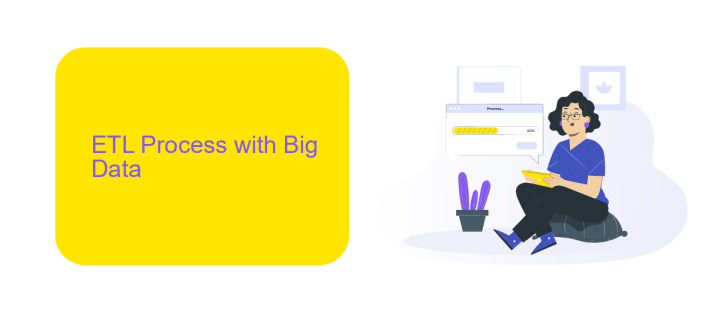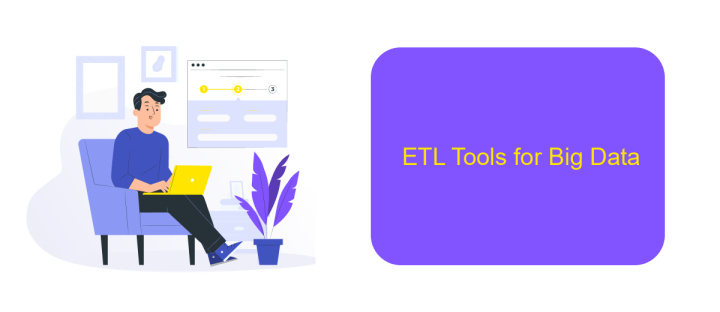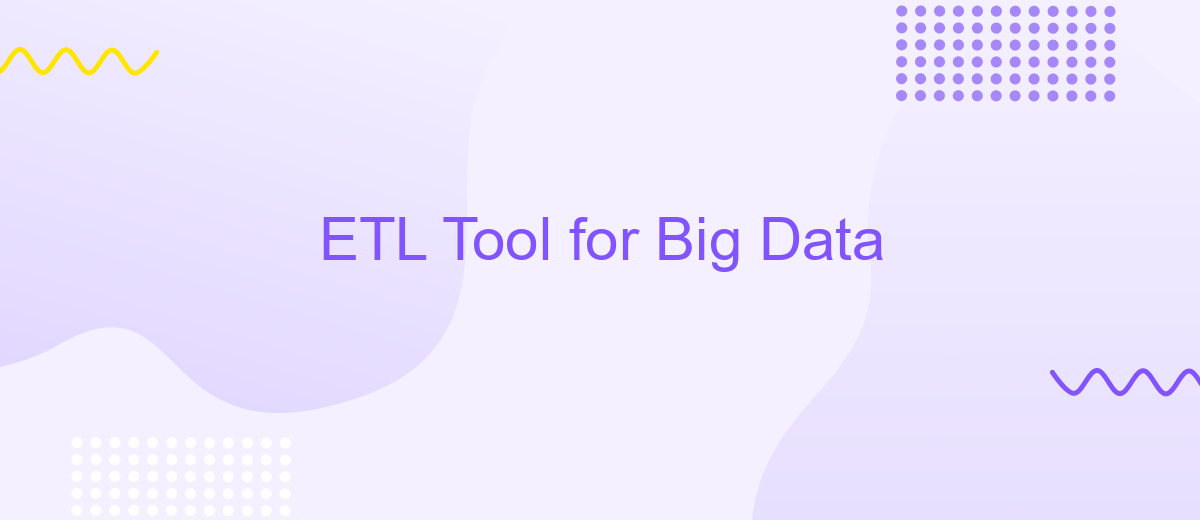ETL Tool for Big Data
In today's data-driven world, managing and processing vast amounts of information efficiently is crucial. ETL (Extract, Transform, Load) tools for Big Data have become indispensable for organizations looking to harness the power of their data. These tools streamline the process of extracting data from various sources, transforming it into a usable format, and loading it into data warehouses for analysis and decision-making.
Introduction
In today's data-driven world, the ability to efficiently extract, transform, and load (ETL) data is crucial for businesses aiming to leverage big data analytics. ETL tools play a pivotal role in managing and processing large volumes of data from various sources, ensuring that the data is clean, consistent, and ready for analysis.
- Extract: Collect data from multiple sources, such as databases, APIs, and flat files.
- Transform: Cleanse, filter, and reformat the data to meet specific requirements.
- Load: Transfer the processed data into a target system, such as a data warehouse or data lake.
One of the key challenges in ETL processes is integrating data from diverse systems. Tools like ApiX-Drive simplify this by offering seamless integration capabilities, allowing businesses to connect and synchronize data across various platforms effortlessly. By automating these integrations, ApiX-Drive helps streamline the ETL workflow, reducing manual effort and minimizing errors.
ETL Process with Big Data

ETL (Extract, Transform, Load) processes are crucial for managing big data. In the extraction phase, data is gathered from various sources such as databases, APIs, and files. The transformation phase involves cleaning, normalizing, and enriching the data to ensure it is in a usable format. Finally, in the loading phase, the processed data is stored in a data warehouse or data lake, ready for analysis and reporting. Efficient ETL processes help organizations make data-driven decisions by ensuring data quality and accessibility.
Handling big data requires robust tools and services to manage the complexity and scale. ApiX-Drive is a service that facilitates integration between different data sources, simplifying the ETL process. By automating data extraction and transformation, ApiX-Drive reduces manual effort and minimizes errors. This allows organizations to focus on analyzing data rather than managing it. With its user-friendly interface and extensive integration options, ApiX-Drive is an excellent choice for businesses looking to streamline their ETL processes and effectively handle big data.
Challenges in ETL with Big Data

Handling ETL (Extract, Transform, Load) processes in Big Data environments presents significant challenges. These challenges stem from the sheer volume, velocity, and variety of data that must be processed, often in real-time.
- Scalability: As data grows exponentially, ETL tools must scale accordingly to handle increased load without performance degradation.
- Data Integration: Integrating diverse data sources, both structured and unstructured, requires sophisticated tools and methodologies to ensure seamless data flow.
- Data Quality: Ensuring data accuracy, consistency, and reliability is critical, as poor data quality can lead to erroneous insights and decisions.
- Latency: Minimizing the time delay between data extraction and its availability for analysis is crucial for real-time analytics.
- Complex Transformations: Transforming raw data into meaningful insights often involves complex operations that can be resource-intensive.
Addressing these challenges often requires advanced tools and services. For instance, ApiX-Drive can facilitate data integration by automating and streamlining the connection between various data sources, thus reducing manual effort and potential errors. By leveraging such solutions, organizations can better manage their ETL processes and derive valuable insights from their Big Data.
ETL Tools for Big Data

ETL (Extract, Transform, Load) tools are essential for managing and processing large volumes of data in big data environments. These tools help in extracting data from various sources, transforming it into a suitable format, and loading it into a data warehouse or data lake. The efficiency and reliability of ETL tools are crucial for ensuring data accuracy and consistency.
Modern ETL tools are designed to handle the complexities of big data, offering features like scalability, real-time processing, and integration with various data sources. They support a wide range of data formats and can process both structured and unstructured data. This flexibility is vital for businesses looking to leverage big data for analytics and decision-making.
- Apache NiFi: Open-source tool for data integration and processing.
- Talend: Provides a suite of tools for data integration and management.
- Informatica: Offers robust ETL solutions for big data environments.
- ApiX-Drive: Facilitates easy integration of various services and data sources.
Choosing the right ETL tool depends on specific business needs, data complexity, and scalability requirements. Tools like ApiX-Drive simplify the integration process, allowing businesses to connect various services without extensive coding. This ensures seamless data flow and enhances the overall efficiency of data management processes.
- Automate the work of an online store or landing
- Empower through integration
- Don't spend money on programmers and integrators
- Save time by automating routine tasks
Benefits of Using ETL Tools for Big Data
ETL tools for big data offer numerous benefits, streamlining the process of extracting, transforming, and loading large volumes of data. These tools ensure data consistency and accuracy, which are critical for making informed business decisions. By automating complex data workflows, ETL tools reduce the time and effort required to manage big data, allowing organizations to focus on analysis and strategy rather than data preparation.
Moreover, ETL tools facilitate seamless integration with various data sources and platforms, ensuring that data from disparate systems can be consolidated efficiently. Services like ApiX-Drive enhance this capability by providing easy-to-use interfaces for setting up and managing integrations without extensive coding knowledge. This not only accelerates the integration process but also enables real-time data synchronization, ensuring that decision-makers have access to the most up-to-date information. By leveraging ETL tools, businesses can enhance their data management capabilities, leading to more efficient operations and better strategic outcomes.
FAQ
What is an ETL tool and why is it important for Big Data?
How does an ETL tool handle data transformation?
Can ETL tools integrate with cloud-based data storage solutions?
What are the key features to look for in an ETL tool for Big Data?
How can automation improve the ETL process for Big Data?
Apix-Drive will help optimize business processes, save you from a lot of routine tasks and unnecessary costs for automation, attracting additional specialists. Try setting up a free test connection with ApiX-Drive and see for yourself. Now you have to think about where to invest the freed time and money!


